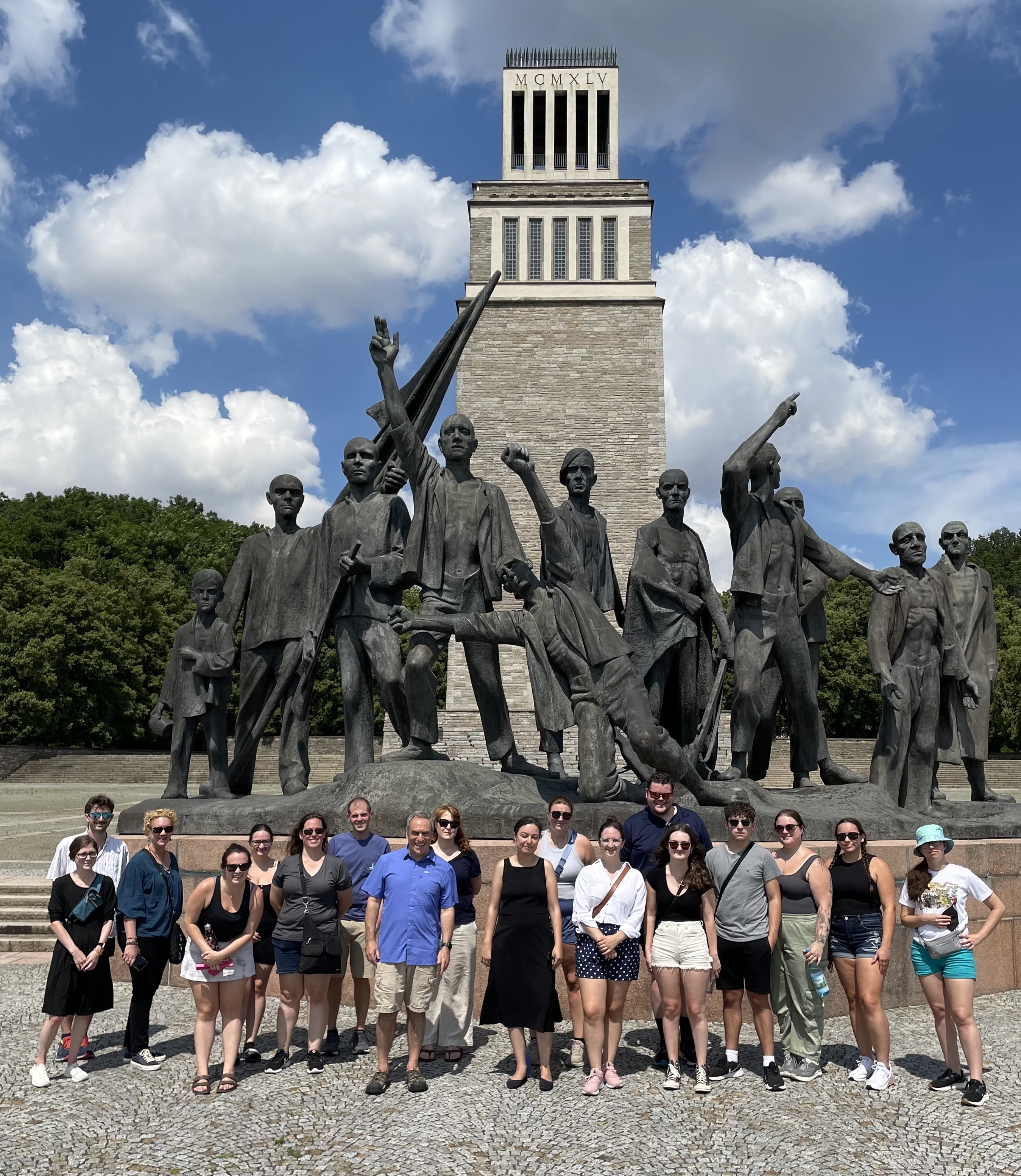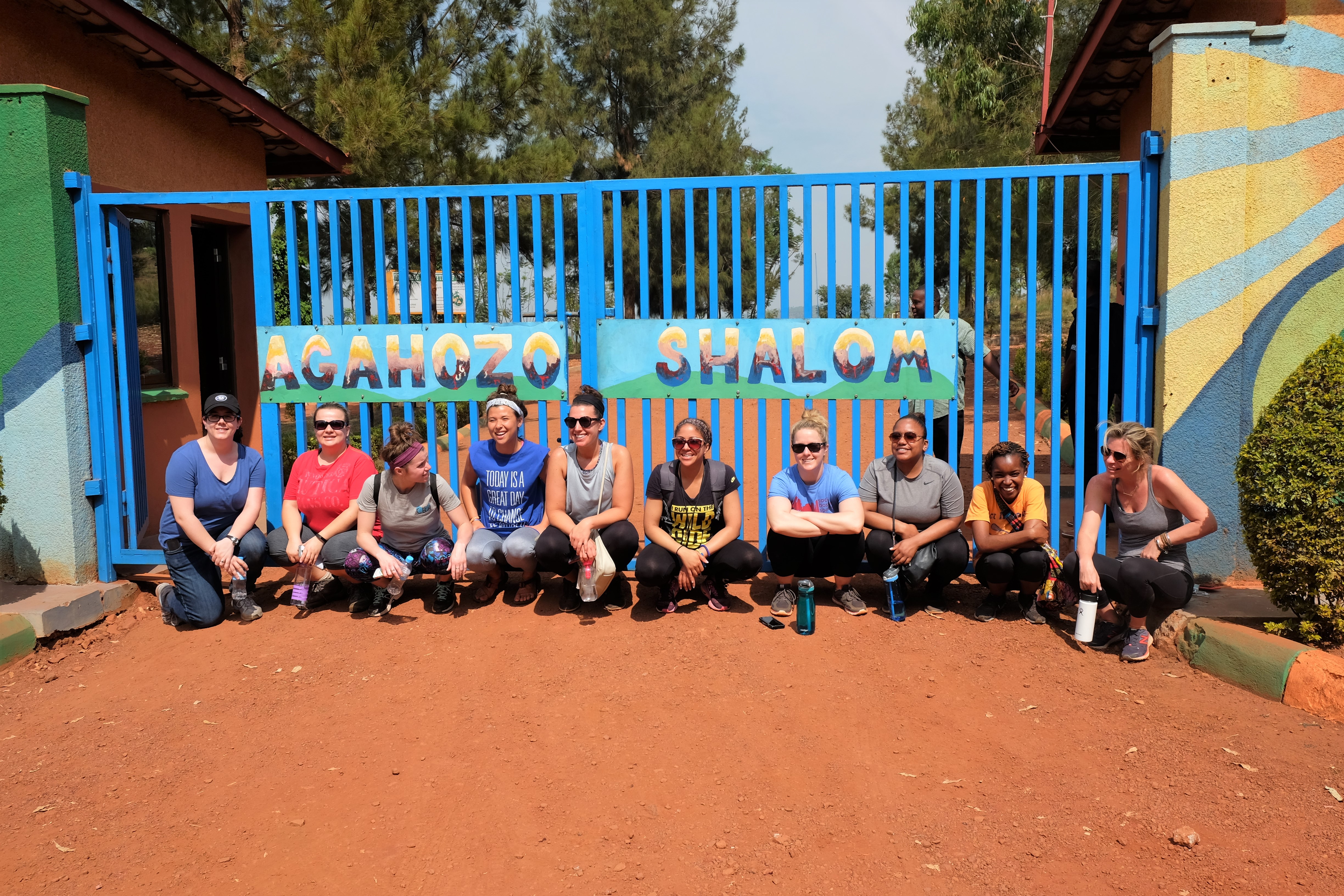CHGS Study and Travel Institutes

Every year CHGS faculty take students, teachers and members of the public abroad to study the effects of mass violence, genocide, and trauma on affected communities. Experiential learning is one of the best ways for students to build empathy, develop cultural sensitivity and deepen their knowledge of international human rights abuses. Undergraduate and graduate students can apply for CHGS scholarships to offset the cost of travel. Educators can convert graduate credits to PDPs for re-licensure. Over the years we have taken hundreds of students and community members to places such as the Nazi Rally Grounds in Nuremberg, Germany, the Auschwitz Concentration Camp in Poland, the Mauthausen Memorial in Austria, the Srebrenica Memorial Center in Bosnia and Herzegovina, and the Kigali Genocide Memorial in Rwanda.
“Traveling to places where the events we study actually occurred allows for a deeper connection with the past and with the people who experienced it.” -Tracy Das, M.A. in History and English
Visit SSU’s Study Abroad Site to learn more about our upcoming study and travel institutes.

Study and Travel Institute to Rwanda
Since 2015 the CHGS has offered a study and travel institute to Rwanda. The institute focuses on the culture and history of Rwanda with special attention to the genocide of 1994. Much of the learning takes place at the Agahozo-Shalom Youth Village, a place of learning and renewal that was formed in the aftermath of the genocide. The 144-acre campus has 32 family houses for 500 students, along with a high school, a farm, and a solar energy field (the largest in East Africa). SSU students are provided living accommodations in guest cottages on the campus and are invited to participate in the community life of the Village. SSU students also participate in numerous off-campus experiences to learn about the culture and history of Rwanda, including visits to genocide memorial sites. The Rwanda study and travel institute provides SSU students with the opportunity to interact with the people of Rwanda in everyday settings such as marketplaces and artists collectives, and to gain a deeper understanding of the many facets of post-genocide reconstruction.
